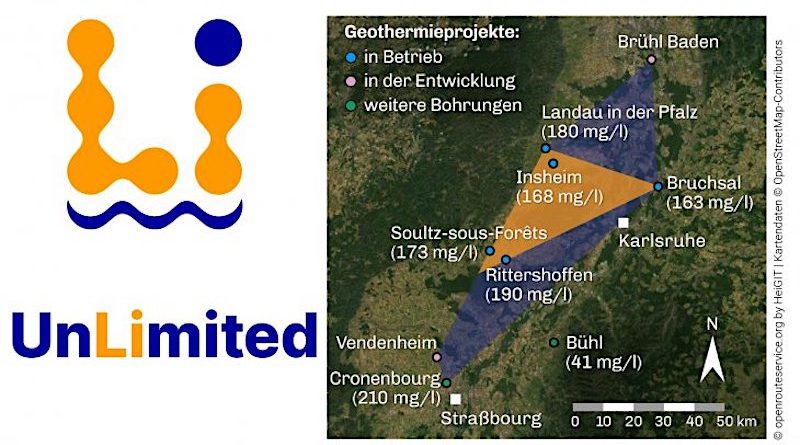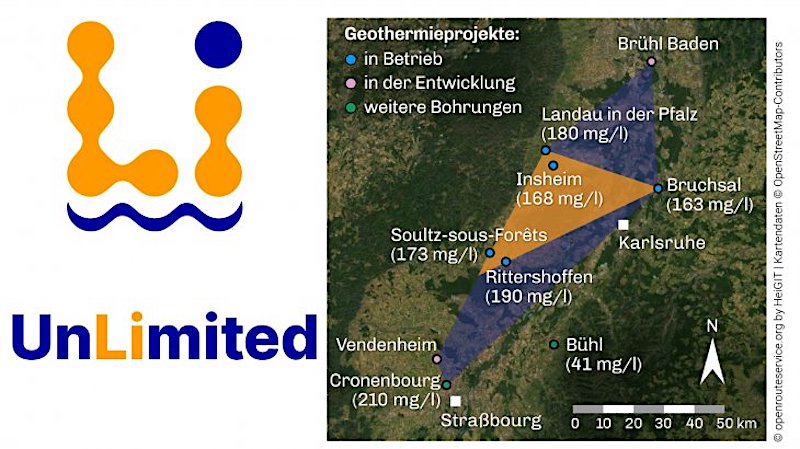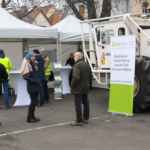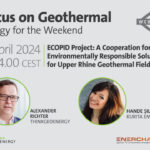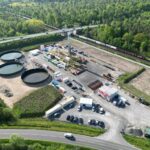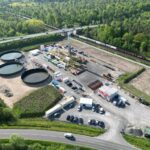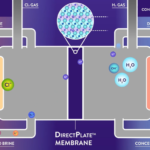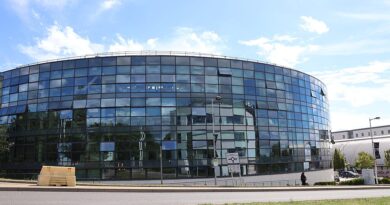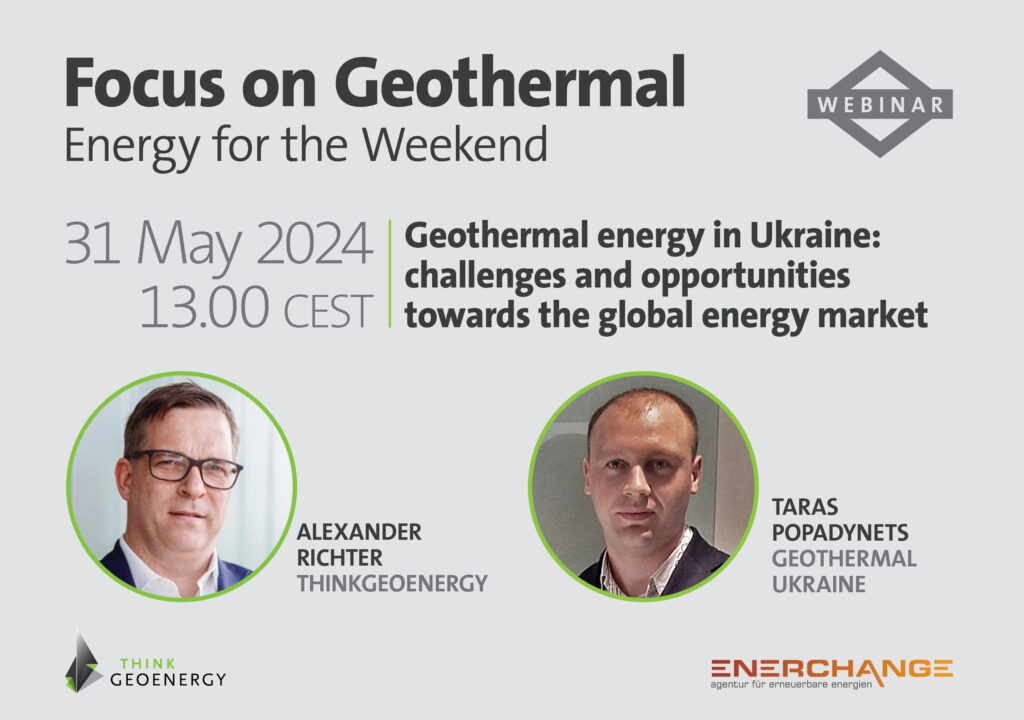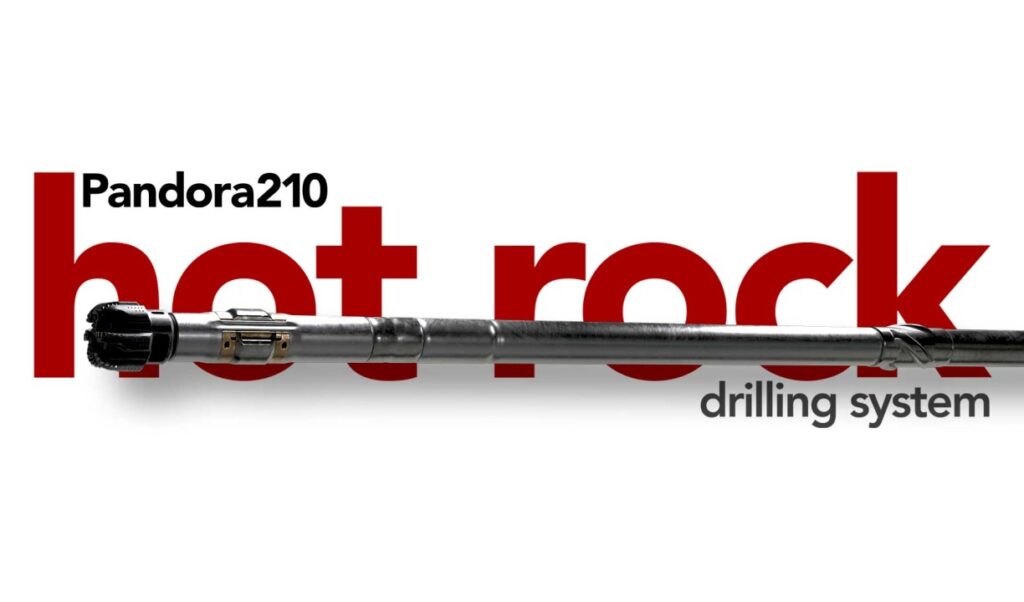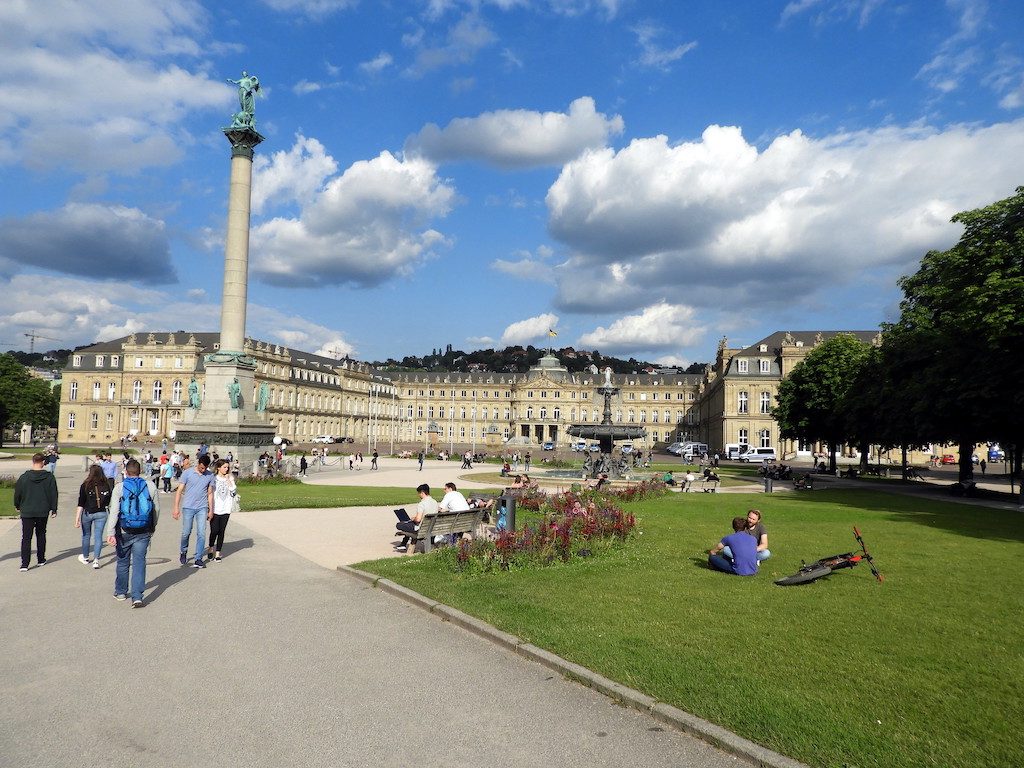Sustainable geothermal lithium deposits in the Upper Rhine Graben
Energy Disrupter
The UnLimited research project points to significant lithium contents of up to 200 mg / L in the deep geothermal brines in the Upper Rhine Graben from Strasbourg to Mannheim.
About a year after its start, the UnLimited project in Germany arrives with promising results. An extraction process for the co-production of lithium from geothermal deep water is currently being tested using the existing Bruchsal geothermal plant as a pilot. At the same time, the project team is also evaluating the lithium deposits in the entire Upper Rhine Graben region. In view of the rapidly increasing demand for lithium in the field of electric vehicles, the knowledge gained is particularly advantageous for the automotive industry.
One year after the start of the project, the first general assembly of the project team “UnLimited” took place on Friday, November 26th, 2021 in a digital setting. At the invitation of EnBW, which acts as the project manager, the project partners BESTEC, Hydrosion, the Karlsruhe Institute of Technology (KIT) and the Georg-August University of Göttingen were represented.
The work results of the first year of the project are impressive: Topics included the developments in the global lithium market, the assessment of existing lithium resources in the Upper Rhine Graben, the technical and economic feasibility of lithium co-production, the hydrochemical characterization of the thermal water at the Bruchsal geothermal site, the selection and testing of suitable sorbents for the extraction process as well as the construction of a prototype and the installation of a pilot plant.
Lithium triangle in the Upper Rhine Graben
First results from the estimation and evaluation of geothermal lithium deposits in the Upper Rhine Rift show significant lithium contents of up to 200 mg / L in the deep geothermal brines from Strasbourg to Mannheim. The geothermal locations in Landau, Bruchsal and Soultz-sous-Forets in particular point to a sustainable lithium source in the deep subsurface. Constant lithium content in deep water in more than ten years of plant operation illustrate the potential. This results in a so-called “sustainable geothermal lithium triangle” in the Upper Rhine Graben. The Insheim and Rittershoffen (on the French side of the Upper Rhine Graben) geothermal sites are also part of this area. We previously reported on another research project.
Thus, the Upper Rhine Rift Valley in Central Europe is so far the only region in which sustainable lithium deposits have been proven in geothermal deep waters. Assuming an average lithium concentration of 160 mg / L, a single project has an estimated annual production capacity of approximately 1,000 tons of lithium carbonate (assuming a production rate of 50 L / s, a lithium recovery rate of 70% and 8,000 operating hours). This corresponds to around 24,000 batteries (60 kWh) for electric cars.
Transparent information for the public
On the UnLimited project website, interested parties can find detailed information about the project as well as its background and goals. The representation of the sustainable geothermal lithium triangle is also available for download there. A quarterly newsletter provides information on the latest project results. The interested public is always up to date – this also increases the acceptance and thus the feasibility of future technologies.
Project website: www.geothermal-lithium.org
Source: Karin Jehle, “Nachhaltige geothermische Lithiumvorkommen im Oberrheingraben”, via our German partner site TiefeGeothermie

